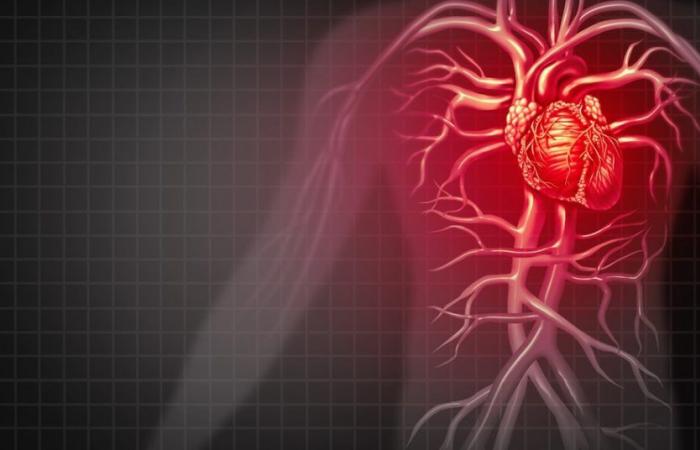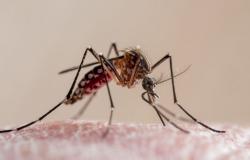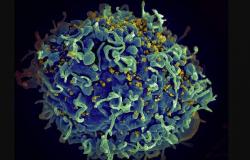We cannot delude ourselves that the Covid-19 pandemic is completely over. Just remember that coronavirus infections increased by 85% in the state of São Paulo after Carnival and, with the change of season, we have a favorable moment for respiratory viral illnesses.
Added to this is a situation in which not all people who should take the reinforcement Covid-19 vaccine did so and others still live with the consequences of the infection, such as memory changes, fatigue and heart problems.
Although it is not common, Covid-19 can trigger what we call myocarditis, an inflammation of the muscle fibers of the heart muscle. Its symptoms can be confused with those of a heart attack, but some particularities guide us to the correct diagnosis.
In myocarditis, the patient may present fever, diffuse chest pain, without specific radiation, loss of appetite and physical prostration – characteristics that are not common in heart attacks.
Continues after advertising
Myocarditis can be caused by viral, bacterial, fungal agents or the toxic effects of chemotherapy and radiotherapy. Trauma to the thoracic region, such as car accidents, falls from a standing height and sports injuries can also contribute to this inflammatory process.
In the specific case of Covid-19, the question always remains as to what would be more active in causing myocarditis: the infection itself or the vaccine. We know that, since the most critical phase of the pandemic, there have been groups completely against the use of vaccines and their main argument is exactly the occurrence of post-vaccination effects.
But clinical studies and the professional experience of those who experienced the chaotic phase of the pandemic are practically unanimous in showing the benefits of vaccines in changing the prognosis of coronavirus infection. In other words, the overwhelming number of cases requiring ICU admission, oxygen support and intubation showed a significant reduction after vaccination began.
Continues after advertising
The vaccine is capable of preventing the infection from progressing to its more advanced form, reducing hospitalization and mortality rates. We know, however, that immunizers can have side effects, even if they do not come close to the manifestations and complications of the disease itself.
+ READ ALSO: Number of children vaccinated against Covid remains low
What is under analysis, however, is whether the acute viral myocarditis it would be more complicated, from the point of view of occurrence and mortality rates, in relation to a possible post-vaccination acute myocarditis. To do this, we need to remember that there are different types of vaccines for Covid-19.
Continues after advertising
The Pfizer vaccine, widely used today, for example, is based on messenger RNA technology. Astra Zeneca’s, in turn, resorted to genetic manipulation of an adenovirus, into which a coronavirus protein is inserted.
Recently, an important study conducted by researchers at the University of Oxford, in England, provided a wealth of enlightening information about the controversy surrounding coronavirus infection and post-vaccination effects. He evaluated data from approximately 43 million people who received at least one dose of the vaccine – 22 million people received three doses of the vaccine and around 6 million people had coronavirus infection before or after being vaccinated. The age group considered was 13 years and over.
The main results demonstrated that viral myocarditis is more common after a coronavirus infection than after using the vaccine. The risk of hospitalization or death from myocarditis is substantially higher after coronavirus infection than after the first dose of the AstraZeneca vaccine or the initial or booster dose of the Pfizer vaccine.
Continues after advertising
Specifically analyzing the association between myocarditis and vaccines, it was noted that men under 40 years of age were the most affected overall. In the case of the Pfizer vaccine, it is noteworthy that cases of myocarditis were more evident after the second dose and, in this younger population, the occurrence rates exceeded cases resulting from coronavirus infection.
The researchers stressed that the risk of myocarditis associated with vaccines is considered small.
More and more population studies and case series will be needed to guide the best management regarding the risk of viral myocarditis after a coronavirus infection or post-vaccination. Until now, Evidence points to a greater risk of myocarditis following a coronavirus infection than as a post-vaccination effect.
Continues after advertising
Therefore, continuing to undergo periodic medical monitoring and getting vaccinated are good measures to protect yourself from the virus. Including in terms of heart protection.
* Edmo Atique Gabriel is a cardiologist and cardiovascular surgeon, university professor and coordinator of the medical course at Unilago, in São José do Rio Preto (SP)
Share this article via:
Tags: myocarditis infections vaccines
--





